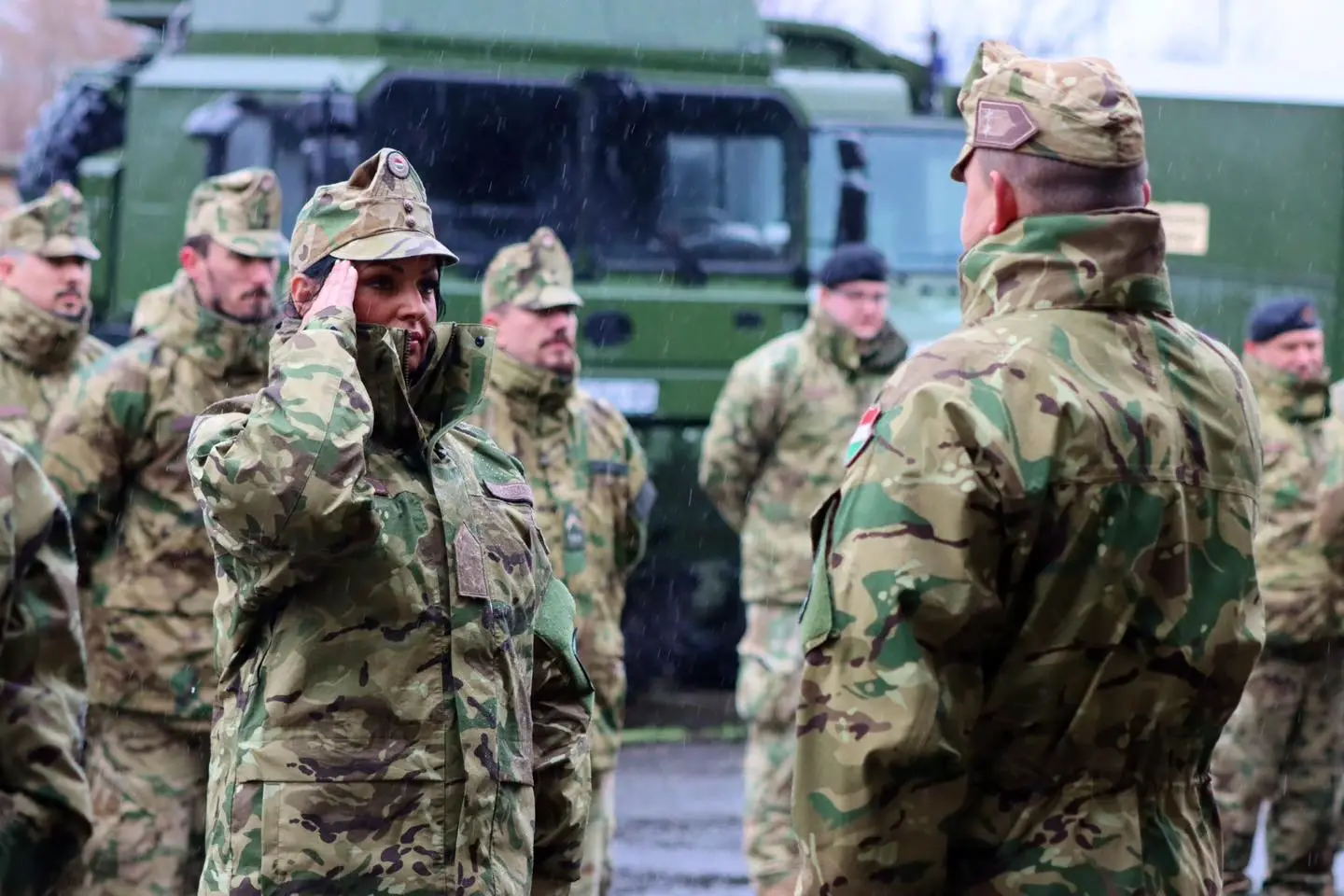Change language:
Minister: The whole Hungarian nation is behind NATO

The Hungarian government and the entire Hungarian nation are behind NATO, Defence Minister Kristóf Szalay-Bobrovniczky said in Székesfehervár, in western Hungary, on Friday, adding that the alliance was an important guarantee for the nation’s security.
Addressing a ceremony marking the Headquarters Multinational Division-Centre’s (HQ MND-C) achievement of initial operational capability, Szalay-Bobrovniczky cited a survey saying that support for NATO among Hungarians was 7 percent higher than average support in the entire alliance.
Hungary has been a NATO member for over 20 years and has been building up its presence in the alliance step by step, the minister said.
Szalay-Bobrovniczky said the security situation in Europe had deteriorated significantly due to the Russian aggression in Ukraine. This has required NATO to adapt, he said, adding that the establishment of the HQ MND-C, which began in 2019, was part of that process.
Croatian Defence Minister Mario Banozic said that the fact that the war in Ukraine was over a year old made the HQ MND-C and the cooperation among Hungarian, Slovak and Croatian officers all the more important.
The minister underlined their efforts to improve their capabilities and boost cooperation. Security cannot be taken for granted, he said, adding that “we must make every effort to maintain the advantage we have over our potential opponents.”
“We are prepared to play a leading role and, if necessary, defend every square centimetre of NATO territory,” Banozic said. Marian Majer, Slovakia’s defence minister, said NATO had gone through significant changes since Russia annexed Crimea almost a decade ago. The alliance’s eastern flank must be further strengthened by deploying more units there, he said.
General Denis Tretinjak, commander of the HQ MND-C, said the centre’s new operational status came with new growth potential and meant that they were capable of establishing a credible and competent command.
General Luigi Guglielmo Miglietta, head of NATO’s Allied Joint Force Command Brunssum, said the alliance was prepared to meet the challenges it faces and was capable of defending its territory. He said the threats faced by the alliance were complex, emphasising, however, that NATO was capable of guaranteeing Europe’s security, its values and way of life.
Addressing a press conference after the ceremony, Majer said the HQ MND-C served as a message to NATO’s opponents, particularly Russia, and demonstrated to the rest of NATO and its allies that “we are not only committed, but also prepared to defend ourselves if anything were to happen.”
Szalay-Bobrovniczky said NATO was “making military history” by setting up the Multinational Division-Centre. He said it had become clear that NATO’s eastern flank needed to be strengthened, adding that there had never before been such a command centre in central Europe.
The HQ MND-C protects several countries in central Europe and has Polish, British, Spanish, Turkish, Croatian and Latvian troops stationed in it, he said. Friday’s ceremony was also attended by General Christopher G. Cavoli, NATO’s Supreme Allied Commander Europe.
Hungarian Parliament adopts pro-peace resolution
Parliament on Friday adopted a pro-peace resolution proposed by the ruling parties to mark the anniversary of the outbreak of the war in Ukraine.
The resolution was adopted by 130 votes for, 24 against, and no abstentions.
In the document, the national assembly expressed its commitment to achieving peace and called on “each member of the international community to avoid steps that could lead to an escalation of the war”. Parliament also condemned Russia’s military aggression and acknowledged Ukraine’s right to self-defence.
The opposition Socialists said it was “shameful” that the ruling Fidesz-Christian Democrat alliance had rejected the United Nation’s pro-peace resolution on the Russia-Ukraine war and instead “forced through parliament” a resolution that was “built on lies” and “obscures the responsibilities for the war”.
Socialists group leader Bertalan Tóth told a press conference on Facebook that the Fidesz-Christian Democrats resolution only served to divert attention from everyday cost-of-living problems in Hungary, “the highest inflation in Europe”, the deteriorating economy, decreasing real wages and the crisis of education, health care and social security.
Read also:








The 23 nations who did not meet the required investment for NATO, should not have voting rights until they contribute the required amount.